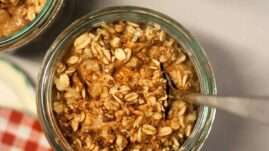Falling in closely behind water, coffee, and tea, wine is one of the most commonly consumed beverages in the world.
The process of winemaking has historically been passed down for generations through families and wine apprenticeships and has been touted not only for its delicious taste, but for its mind-altering effects, ability to boost creativity, strengthen social bonds, and its many health benefits.
So, is wine good for people living with diabetes?
This article will outline the pros and cons of drinking wine if you live with any type of diabetes and give tips to make your evening glass of wine healthier and safer.

The basics of wine
Wine is most commonly a drink made from fermented grapes, but many other varieties of wine exist, including mead (wine made from honey), peach wine, blueberry wine, and cherry wine, among many others.
There are also wine coolers, which consist of wine and added fruit juice, making them taste sweeter, be more calorically dense, and they tend to have more carbohydrates and added sugars as well.
Traditional red, white, or rosé wine, however, tends to be extremely low in sugar, as the sugar from the grapes is broken down and converted by yeast into alcohol (ethanol) and carbon dioxide during the fermentation process.
A typical 5-ounce pour of wine (serving size) contains fewer than 1.5 grams of sugar unless the wine is otherwise artificially sweetened.
Even though wine does not have added sugar and is relatively low-sugar, it does contain a significant amount of calories: one 5 ounce glass contains around 120 calories, which can add up if you drink several glasses of wine per day, several days per week.
Making wine more difficult to drink for people with diabetes is the fact that wines are not subject to nutrition labels the way other foods and beverages are because alcohol is regulated under the Alcohol and Tobacco Tax and Trade Bureau (TTB), which makes nutrition labels on alcoholic beverages optional.
The health benefits of wine
Wine (and alcohol in general) is a controversial beverage, but studies have shown that moderate drinking of wine (especially red wine!) is associated with a slew of health benefits for the general population.
Always talk with your doctor if you have addiction issues or struggle to consume any type of alcohol in moderation.
If opting to drink wine, here are some of the health benefits that you may enjoy:
Reduced risk of diabetes complications
A 2010 study in rats showed that daily red wine consumption (and the increased consumption of the antioxidant resveratrol) reduced the risk of certain diabetes complications, especially nerve damage.
An additional 2013 study also confirmed this. It’s important to note, however, that the antioxidant resveratrol can be found in many other foods as well.
Resveratrol is also found in peanuts, pistachios, grapes, blueberries, cranberries, dark chocolate, and cocoa, and the benefits of red wine (in these studies) were directly linked to the resveratrol content of the wine and not necessarily the fact that the subjects were drinking wine.
Reduced risk of developing type 2 diabetes
A 2014 French study showed that the risk of developing type 2 diabetes in overweight women actually decreased in individuals who consumed red wine.
Strikingly, women in the study who started to drink wine early in life (between 10–15 years old) were at a significantly lower risk for developing type 2 diabetes than lifetime abstainers, showing the cumulative protective benefits of red wine.
Improved cardiovascular health
A 2019 study proved that red wine drinking was correlated with an overall lowered risk of coronary heart disease.
The authors of the study suggest that the health benefits diminish if drinkers consume more than what the Centers for Disease Control and Prevention (CDC) recommend:
- One 5oz glass of wine per day for females
- Two 5 oz glasses of wine per day for males
A typical glass of wine contains 12% alcohol by volume.
Red wine consumption may also help to lower blood pressure, reducing the likelihood of a heart attack, due to procyanidins that help keep the blood vessels healthy.
In 2016, researchers concluded that red wine may help protect people from heart disease due to its gut health benefits. The fermentation of wine is said to help protect the gut flora and promote health, including heart health.
Promotes gut health
Additionally, researchers have found that the polyphenols found in wine (especially blush and red wines) improve gut microbiota, improving gastrointestinal health.
Although the research is limited, a healthy gut microbiome is associated with improved brain health, heart health, GI (gastrointestinal) health, lower rates of cancer, lower rates of obesity, and lower rates of dementia as well.
The resveratrol in red wine is especially powerful in protecting against certain types of cancers, although The National Cancer Institute has correlated heavy alcohol use with a variety of cancers, including colon, breast, liver, and mouth and throat cancers, especially in people who binge drink often.
Longer life expectancy
Due to all of the benefits of wine (mostly red wine), it makes sense that drinking it would be correlated with a longer life expectancy.
One popular study from 2000 confirmed this: men between 45–64 who imbibe with 5 drinks per day enjoy a longer life expectancy than occasional and heavy drinkers. However, it was mostly red wine that was consumed, again giving credit to the antioxidant resveratrol.
There may be some other factors to consider: people who tend to drink wine, are also more likely to eat a Mediterranean diet, may have more disposable income, and are more likely to be drinking socially with friends; all of these factors also contribute to a longer life expectancy and may have skewed results from these studies.
The dangers of drinking wine
Addiction
Wine is an alcoholic beverage, and so people who love wine may also struggle with addiction.
If you feel that you struggle with alcohol addiction, please contact the Substance Abuse and Mental Health Services Administration at: https://www.samhsa.gov/find-help/national-helpline or call 1-800-662-HELP as soon as possible, and also talk with your doctor for resources that may help you quit.
Weight gain
Wine is not a low-calorie food. With more than 100 calories per 5-ounce glass, drinking a few servings per night, several nights a week, can quickly lead to weight gain, without any nutritional benefit (there are no vitamins or minerals in wine).
Make sure you’re balancing your wine consumption with healthy meals and regular exercise to mitigate the caloric difference when indulging.
Work with your doctor to formulate a diet and exercise plan that will work for you, your diabetes, and your health and fitness goals.
Health issues later on in life
Long-term, heavy drinking has been correlated with a higher risk of diabetes complications, such as metabolism disturbances and retinopathy.
It can also cause a buildup of harmful acids in the blood, and increase one’s risk for certain types of cancers, heart disease, and premature death. Moderation is key!
Low blood sugar
Alcohol consumption leads to an increase in insulin secretion, leading to low blood sugar.
Hypoglycemia (low blood sugar) can last into the next day as well. This occurs because the liver is busy processing the alcohol content from the previous night’s drinks, so glycogen (glucose) will not be released from the liver if one’s blood sugar starts to drop.
The more one drinks, the greater the likelihood of low blood sugar, which can be dangerous.
People with diabetes should always carry glucose tabs or another form of quick-acting sugar with them in case of a severe low blood sugar and they should check their blood glucose regularly both during and after drinking.
The risk of alcohol-related low blood sugar is higher when a person:
- Drinks alcohol on an empty stomach
- Is on insulin or other diabetes medications
- Drinks heavily and/or binge drinks
It’s also important to remember that some diabetes medications may not work as well if too much alcohol is consumed, especially some type 2 diabetes drugs.
You may need to decrease the amount of insulin you take if you plan to drink. Check with your doctor before making any adjustments to your diabetes management.
I strongly recommend reading this guide to alcohol and diabetes before drinking wine or any other alcoholic beverages.
Tips for healthier and safer consumption of wine
If you choose to consume wine and you live with diabetes, here are some tips that can make your experience healthier, safer, and better:
- Know your blood sugar throughout the entire evening, to help prevent lows, and do not start drinking if your blood sugar is currently low. Always treat low blood sugar first
- Let other people you’re drinking with know that you have diabetes and how to help you if you experience a low blood sugar
- Wear a medic alert bracelet and have an emergency contact’s phone number with you
- Drink in moderation. One 5 oz glass of wine per day for women, and two 5 oz glasses of wine per day for men is what the CDC recommends
- Don’t drink on an empty stomach, and eat foods that are high in both fat and protein while you drink
- Alternate every alcoholic drink with a glass of water (this also prevents hangovers!)
- Have a plan (how much do you plan on drinking in an evening? How will you get home safely? How will you manage and treat any low blood sugars you experience?)
Conclusion
People who live with diabetes and drink wine (especially red wine) in moderation may enjoy many health benefits, including improved heart, brain, and gut health. Many of those benefits are due to the antioxidant resveratrol found in red wine.
Light to moderate wine consumption, if you have diabetes, has also been correlated with lower risks for diabetes complications and decreased mortality.
Many people with diabetes can enjoy light to moderate wine drinking regularly with no problem whatsoever, especially because the drink is naturally low in sugar, and does not tend to increase blood sugar levels in any significant way.
However, wine is calorically dense and has no vitamins or minerals. Over-consumption of alcohol can lead to addiction, weight gain, increased rates of cancer and heart disease, and dangerously low blood sugars. This can lead to both short and longer-term diabetes complications.
It is important for people with diabetes to closely monitor their blood sugar levels while consuming wine, and to drink it in moderation.
People who are pregnant, breastfeeding, or planning on becoming pregnant should not drink alcohol.
People with a history of alcohol use disorder or binge-drinking disorder should work with their doctor for safer drinking strategies to reduce or eliminate the amount of alcohol they consume.




Dr. David Greene
Thanks for sharing. Wine may even offer some protective health benefits in small quantities. A recent study revealed that moderate red wine consumption can reduce the risks of heart disease in people with well-controlled type 2 diabetes.